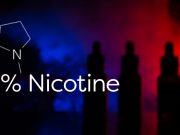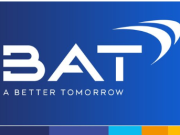What is your position regarding the future regulation of the FDA?

Patricia Kovacevic: First, a little reminder. In 2009, the US Congress passed the Family Smoking Prevention and Tobacco Control Act, giving the FDA the status of primary regulator of tobacco products. This law applies to tobacco and its derivatives, with the exception of medicines, as well as components and accessories of tobacco products. It results from a struggle of decades to counter the bad practices of the tobacco industry, but it has clearly not been thought with vaping products.
Today, the new regulations issued by the FDA includes products of vape, cigars, shisha and products containing nicotine in the Tobacco Control Act. In fact, this regulation does not take into account the reduced risks of certain products compared to those of smoking, such as vaping.
How will the vape industry be impacted?
P.K.: In the short term, it freezes completely innovation because, from 8 August 2016, no product may be modified without FDA approval. Moreover, the price of the procedure is prohibitive. In addition, the FDA has no experience in examining this type of product. For their part, the vape shops will no longer manufacture their e-liquids. Manufacturers will no longer offer samples, and will no longer give statements such as “No diacetyl”, for example, on the packaging.
A second more devastating impact happens in two years when all importers and domestic manufacturers will have to file an extremely expensive folder for each product with the FDA. This folder will include clinical studies and other very expensive analyzes as prerequisites for maintaining products on the market. The resources, the expertise and the cost of implementing such a process, with little clear guidance from the FDA, are estimated at several million. Only large companies are able to bear such costs.
What is the worst case scenario?
P.K.: The worst for America, it would be that the current vapers be forced to return to smoking or they should defy the law and buy dangerous and unsafe products on the black market because the industry was wiped out by a disproportionate regulation, which is not based on scientific studies. There are precedents in the United States with the alcohol prohibition in the 1920s or with conventional cigarettes, the black market explodes when the legal industry declines.
How will this impact the vaper’s behavior?
P.K.: It would be naive to think that would somehow choose to move to medicinal nicotine replacement therapies if they can not buy vaping products. For some people, these substitutes just do not work. And fundamentally, people want the freedom to keep vaping. Public health and small business will be most affected if the direction taken is not reversed. Nicopure Labs is committed to change the course of things in two ways. First, we filed an appeal in federal court challenging the regulation, since its official publication. The case is ongoing. Second, through our participation on the board of the Vapor Technology Association (VTA), we can ensure that work with legislators has increased this year to develop a regulatory sense.
What do you expect the appeal lodged before the Washington federal court?
P.K.: We have confidence in our legal team and we are confident of our arguments, but we are only at the beginning of the case. We hope a rapid judgment as possible in the course of the year 2017. Of course, it may be longer because calls are possible thereafter. For now, nothing is.












